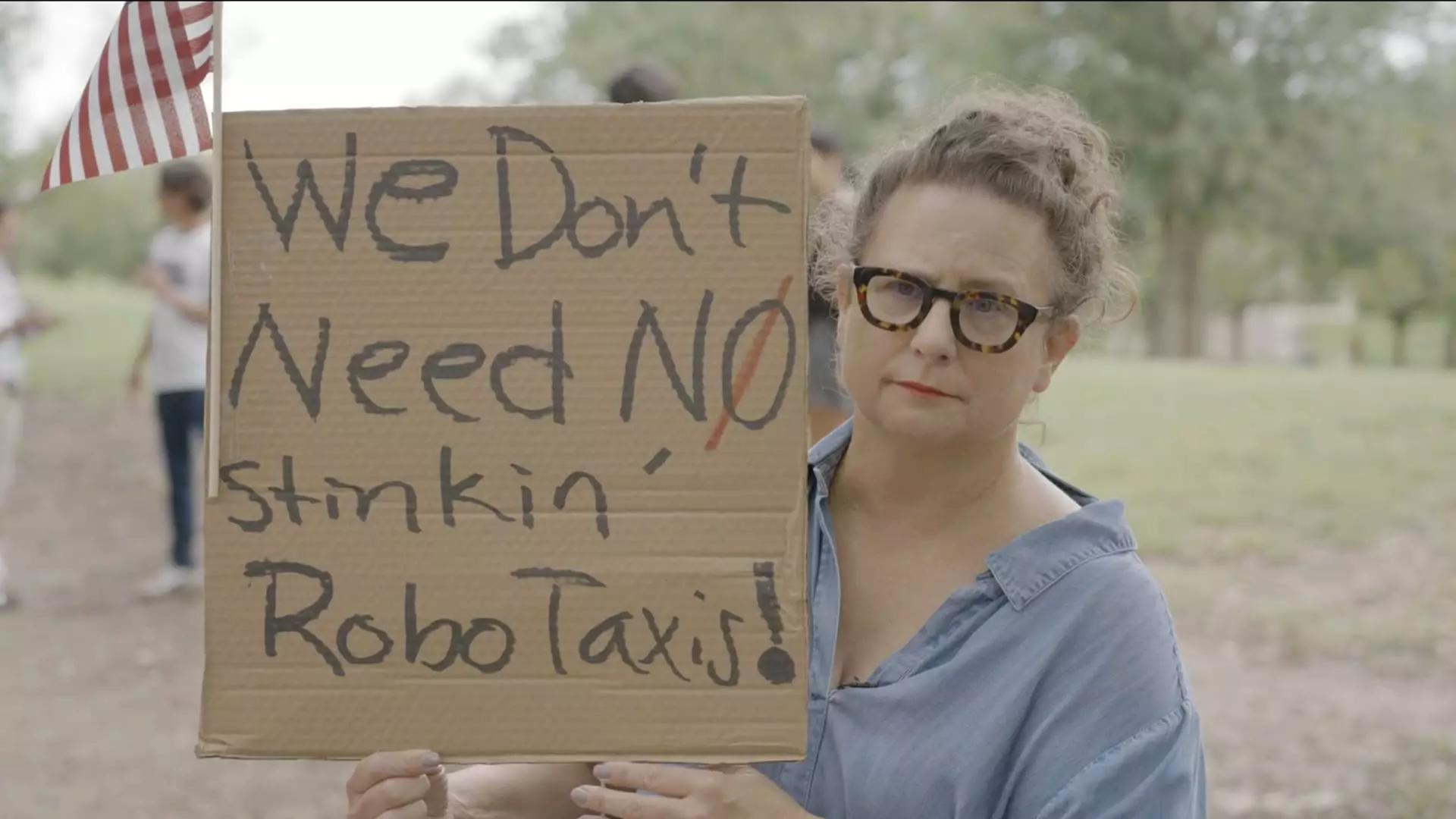As Tesla gears up for its anticipated robotaxi pilot service in Austin, Texas this June, a wave of dissent is rippling through the community. The collision between innovation and public safety has never felt more pronounced. A coalition of protestors—comprised of safety advocates, political dissenters, and concerned citizens—took to the streets of Austin to voice their considerable apprehensions. At the heart of their ire is none other than Elon Musk, a figure whose polarizing influence has made headlines far beyond the automotive world. Critics argue that Musk’s political affiliations, particularly his ties to the Trump administration, only exacerbate the already looming shadow of safety concerns surrounding Tesla’s automated driving systems.
The Dangers of Overconfidence in Technology
Tesla’s claims of revolutionary vehicle autonomy are enticing yet alarmingly ambitious. Many of the automaker’s offerings, such as the Autopilot and the “Full Self-Driving” (FSD) package, are touted for their innovative features like automatic lane changes and self-parking. However, this so-called “innovation” hides a troubling track record—one riddled with incidents of serious accidents, including fatalities. According to the National Highway Traffic Safety Administration, hundreds of crashes have been linked to these automated systems, raising the question: Are Tesla’s technological aspirations outpacing the necessary safety measures?
The recent demonstration led by the Dawn Project underscores this palpable tension, where test drives of FSD software included shocking scenarios that clearly illustrate the potential dangers. For instance, witnesses watched in horror as a Tesla equipped with the latest FSD technology failed to stop for a school bus with its stop sign extended—an appalling oversight that could translate from staged demonstrations to real-world tragedies in a heartbeat.
A Call for Accountability and Transparency
The voices of protesters like Stephanie Gomez and Silvia Revelis echo a broader societal fear: the lack of accountability in tech giants like Tesla. Gomez articulated a profound distrust in the company’s commitment to safety, echoing the sentiment that Musk’s political engagements distract from the pressing need for transparency with the public. The ongoing absence of comprehensive safety testing results and the reluctance to disclose information regarding robotaxi operations foster an environment of skepticism. Revelis’s remarks on safety not only highlight the immediate risks but also question the ethical ramifications of launching an technology that could potentially put lives at risk without thorough vetting.
The Broader Implications of Tesla’s Ambitions
Tesla’s pursuit of a fully autonomous vehicle fleet not only positions the company at the forefront of innovative technology but also unveils a precarious dilemma—a clash between the enthusiasm for groundbreaking advancements and the moral responsibility toward public safety. This conflict transcends technology; it’s a critical moment about how much we as a society are willing to sacrifice at the altar of innovation.
As Texas prepares for the robotaxi revolution, it remains imperative to scrutinize these developments closely. Are we moving towards a safer, more automated future, or are we merely paving the way for reckless technological advancement that outstrips our preparedness for the consequences?


Leave a Reply